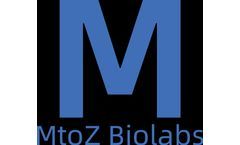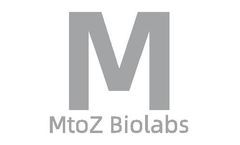Metabolism Process Articles & Analysis: Older
29 articles found
Pharmacokinetics: The Journey of a Drug The pharmacokinetic profile of a drug describes its absorption, distribution, metabolism, and excretion (ADME) processes. These stages dictate how fast a drug acts, how long its effects last, and how it is eliminated from the body. In an in vivo setting, these processes are influenced by physiological ...
Beyond their roles in blood flow regulation and inflammation, SMECs contribute to metabolic functions within skeletal muscle. They participate in the uptake and delivery of glucose and fatty acids, influencing the metabolic state of the muscle. This function is particularly important in the context of metabolic disorders such as obesity and type ...
Oxidative phosphorylation is the process by which mitochondria produce ATP (adenosine triphosphate) in the cellular respiration chain. It is a crucial step in cellular energy metabolism. In this process, electrons are transferred from one carrier to another through a series of oxidation-reduction reactions and are ultimately passed to oxygen to ...
By cleaving RNA molecules, RNases are integral to numerous biological processes, ranging from RNA maturation to the innate immune response against RNA viruses. ...
Pharmacokinetic and Pharmacodynamic StudiesUnderstanding the distribution, metabolism, excretion process, and pharmacological properties of ADCs in the body.Antibody-Drug Conjugates Assay ...
Thyroid hormones play a vital role in regulating various metabolic processes throughout the body, including energy production, body temperature, heart rate, and growth. ...
Vitamins Vitamins are essential nutrients for maintaining normal physiological functions and promoting various metabolic processes in the human body. There are two main types of vitamins: fat-soluble and water-soluble. ...
This example demonstrates the popularity and scientific support for the inclusion of vitamin C in dietary supplements. [1] Minerals Minerals such as calcium, magnesium, and zinc are commonly included in dietary supplements due to their roles in maintaining bone health, muscle function, and overall metabolic processes. For example, in dietary supplements, zinc can ...
The cosmetics and skincare industry is constantly evolving and a recent trend that has emerged is the use of fermented ingredients in skincare products. Fermentation is a microbial metabolic process that has been used for centuries in food and beverage production, and now it has been extended to the cosmetic industry.What are Fermented Raw Materials?Fermented raw ...
Due to their targeting of the physical structure of microbial cell membranes rather than specific cellular processes, AMPs have a lower likelihood of inducing microbial resistance, making them potential candidates against drug-resistant strains. ...
Increased oxygen availability supports metabolic processes, ensuring vibrant and energetic marine life. 5. Environmental Impact: Using ozone in LSS reduces chemicals and energy consumption, making commercial aquariums more environmentally sustainable. ...
Firstly, they provide information on drug absorption, distribution, metabolism, and elimination, which are crucial for determining appropriate dosages and treatment regimens in humans. ...
Enzymes are protein molecules that catalyze chemical reactions in living organisms. They are involved in many metabolic processes and play a critical role in maintaining the health of the body. ...
Serum enzymes come from tissues or secretions that enter the plasma, and tissue enzymes come from the metabolic processes of cells. Enzyme synthesis and secretion in normal tissues are enhanced. ...
In recent decades, with the continuous technological breakthroughs in enzyme engineering, it has become more and more widely used in industry, agriculture, medicine and health, energy development and environmental engineering. Food processing applications The biggest use of enzymes in the food industry is starch processing, followed by dairy ...
Mitochondria are important organelles of eukaryotic cells and play a key role in the regulation of cellular energy metabolism, biosynthesis and cell death (including apoptosis and programmed cell necrosis). In addition, mitochondria are involved in important physiological processes such as tricarboxylic acid cycle, fatty acid and amino acid oxidation, and ...
Pharmaceutical excipients can also be used in the manufacturing process, for example, by promoting the flowability or non-stick properties of the powder to assist in the handling of related active substances. ...
Serum enzymes come from tissues or secretions that enter the plasma, and tissue enzymes come from the metabolic processes of cells. Enzyme synthesis and secretion in normal tissues are enhanced. ...
These chemical compounds reflect the end processes of metabolic pathways. Patterns of compound peaks form ‘signatures’ when breath is analysed into its components and it is these signatures that allow for disease conditions to be identified. ...
Part II: Understanding familial and sporadic ALS Welcome to our newest blog series where we investigate Amyotrophic Lateral Sclerosis (ALS) using our AI knowledge mapping tools. Check back for our next installment, in which we analyze transcriptomics from spinal cord samples collected from patients as well as a mouse model. In this second post in our Exploring ALS series, we will begin to dig ...
ByPercayAI












